The nightmare clings to Talia the next morning, clouding her thoughts and making her jump at any movement in her peripheral vision as she gets ready for school.
A new wave of snow is falling on the city, coating the streets and the tops of the skyscrapers. Polo waves from her usual spot on the front steps of her squat apartment building, eyes peeking out above the the top of her large scarf. Talia waves back perhaps a little too enthusiastically.
It’s hard not to when Polo makes her feel seen.
On the bus, her thoughts return to the events of yesterday. To the way that Polo humiliated the King with only a few powerful moves and how cool she looked doing it. What if Talia could learn to fight like that? She would be unstoppable. She would finally become the dragon she still feels coiled up in her ribcage.
She drafts a speech in the margins of her notebook during several of her classes, tuning out the drone of the teacher and trying to find the perfect words to convince Polo to teach her. Polo clearly likes her—enough to help her, enough to look out for her, enough to learn her name—so this shouldn’t be too hard, Talia thinks.
The confidence carries her all the way home, in spite of the biting wind and the ominous clouds gathering overhead, heralding a blizzard. Polo is still on her steps, carving some sort of figurine out of wood with a sharp knife and humming to herself. Talia stops at the wrought-iron gate, curling her gloved fingers around the icy metal.
“Hello, Talia,” Polo says without looking up.
“Hello,” Talia replies and then takes a deep breath, ready to recite the speech she’s memorized. “Thanks again for your help yesterday. I don’t know what I would have done if they caught me, so—”
“Is it true?” Polo interrupts, still carving. “That you started the fight with them?”
A lie is ready on Talia’s tongue, but she pauses. Considering the fact that Polo saved her, has continued to look out for her, maybe she’s one person Talia owes honesty to.
“Yes,” she admits. “But they’re bullies. They pick on tons of kids in the neighborhood.”
“Ah, I see,” Polo hums. “So you wanted to stop them from bullying others?”
“...not exactly.”
Finally, Polo lifts her head. Her eyes are piercing, peeling Talia back layer by layer. “Then why?”
Talia shifts her weight nervously. “Because…it felt good. To punch him.”
She doesn’t know how to explain the dragon, but she wonders if Polo can see it and the fire it breathes in her chest. Polo makes a contemplative sound.
“Does it make you feel powerful? Is that why you get in so many fights?”
Talia nods.
“Then my answer is no,” Polo says, though her voice is gentle.
“Answer?” Talia asks.
“To the question you were going to ask. You want me to teach you how to fight, but I can’t do that until you’re ready to stop fighting out of anger and loneliness.”
Talia tenses, the rest of her speech scattering in her brain to make room for Polo’s words. Polo is watching her, judging her, waiting for her response. She wants to curl in a defensive shell because she hates how true the words feel, lodging somewhere in her gut and sticking like a knife. She knows where the dragon came from, why it still remains. But what’s so wrong with anger? Doesn’t she have a right to be angry? What does Polo know? What does anyone? And whose fault is it that she’s alone? Her parents who abandoned her? Her foster parents who have never cared about her?
Her own?
Polo sighs and stands as Talia’s silence stretches on. She can’t deny it with the sudden stone blocking her throat so she watches, frozen, as Polo descends the steps and stops on the other side of the gate, curling a hand over her shoulder.
“Instead of learning how to fight,” Polo says, “you should focus on other things. Like making other friends.”
“Friends are pointless,” Talia mutters, remembering the odd boy and his odd books, who only left a letter behind.
“Not always,” Polo insists. “The bonds we have with other people can be the most powerful things in our lives. We just have to make sure they stay strong.”
Talia isn’t sure she’s ready to believe that. It sounds like something written on the inside of a cheesy card, like the kind Foster Mother Five used to buy her instead of gifts for her birthdays.
“You really won’t teach me?” She says, fighting back the burn of tears and the familiar rush of anger that surges through her nerves.
“Not to fight,” Polo says. “But I can teach you other things.” She points to the torn sleeve of Talia’s coat. “Like how to patch yourself up.”
Well…that tear has been bothering her for weeks, and the Foster Parents would never agree to buy her a new one…
“Okay,” she decides. “Fine.”
Polo grins at her.
And that’s how it starts, simple at first, but soon, Talia takes to spending every afternoon at Polo’s apartment. She does her homework at Polo’s table, tracing the grooves of the old wood, while trying to puzzle out math homework. She follows Polo to the market. She listens as Polo explains how to pick out the best vegetables and how to bargain with the older ladies running the stalls.
Polo teaches her how to sew, how to carve little figurines out of a block of wood, how to determine exactly when pasta and rice is done, how to add the right combination of spices to make any dish taste good, how to get tough stains out of fabric with just baking soda, and dozens of other small, glorious things.
There is so much that Polo knows. Talia wonders yet again if she is a ghost, with knowledge from beyond the grave.
But most importantly, Polo’s apartment feels welcoming unlike the mausoleum Talia’s foster parents pretend is a home. There is no bleak silence here, no need to be invisible. It’s alive—from the songs that Polo hums as she works to the colorful paintings of far-off places hanging on her walls. The plants grow on her windowsills, stretching to catch the faint light of the winter sun.
Talia feels alive there, too, and slowly, without her really noticing, the dragon starts to slumber, and the angry fire inside of her wanes to embers. She goes weeks without fighting, then two months—the first bloom of spring chasing away the worst of the cold.
But one day at school, she spots another girl sitting alone in the cafeteria, huddled up small and forlorn over her lunch tray in a manner that Talia knows intimately. Friends are still pointless, she thinks, but maybe…
She marches over to the girl’s empty table and sets her own tray down, taking a seat across from the stranger. The girl’s dark bangs fall into her eyes, obscuring her face, but her head jerks up as Talia takes a seat across from her. She looks a little younger and far more fragile—paper skin and big eyes.
“Can I sit here?” Talia asks, though she has no plans to move.
“Do you want to?” the girl asks.
“Do you want me to?” Talia counters.
The girl shrugs, and slowly but steadily, her face lights up like the spring sun.

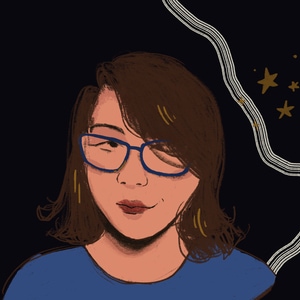

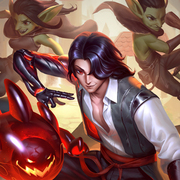
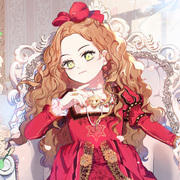
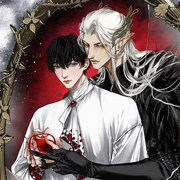
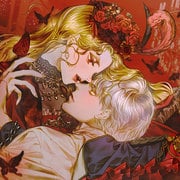
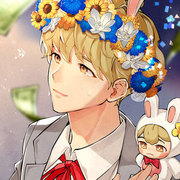
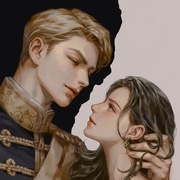

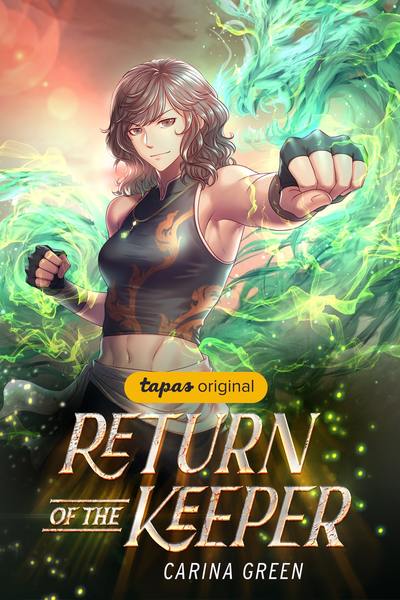
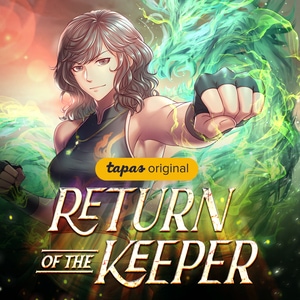
Comments (4)
See all